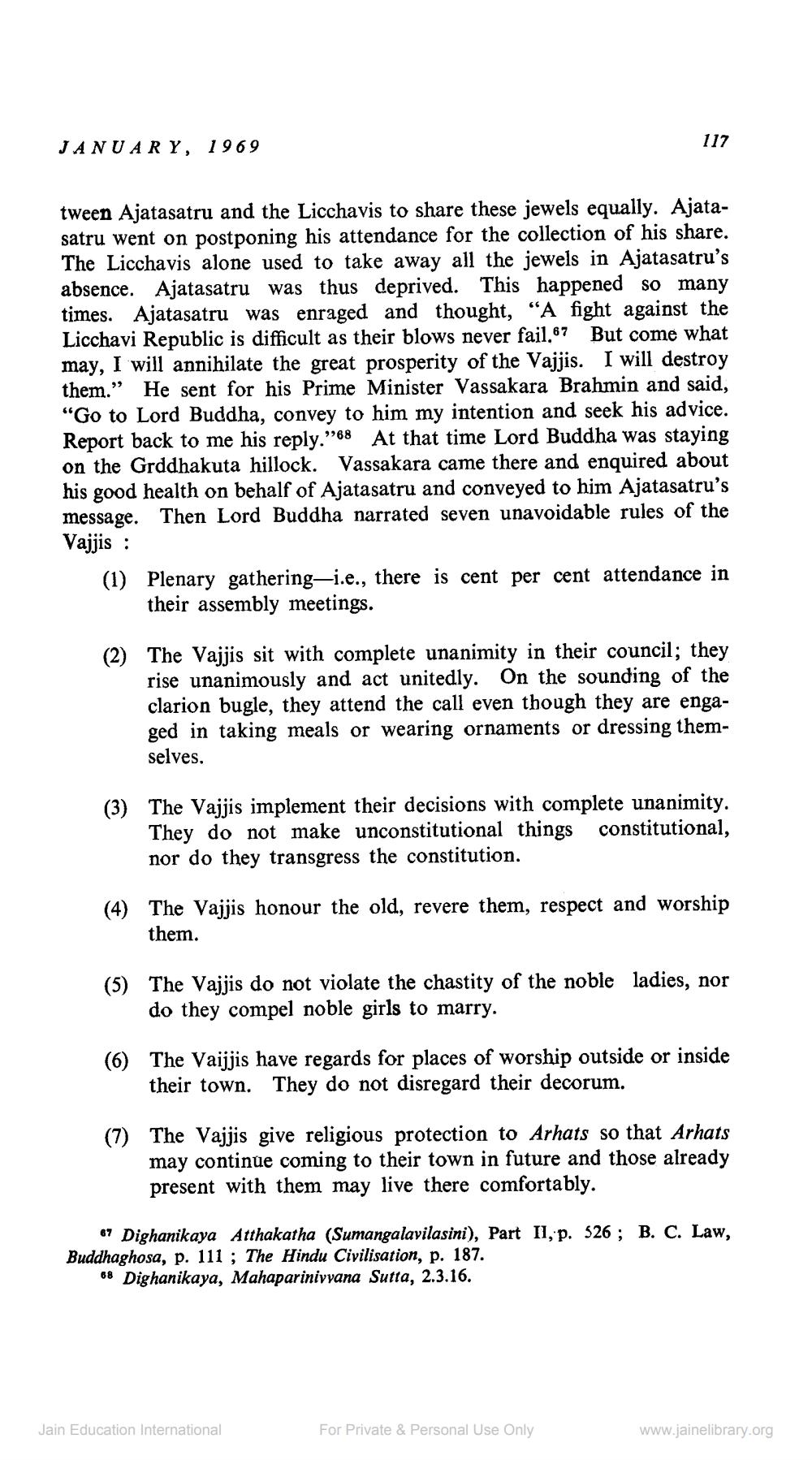________________
JANUARY, 1969
117
tween Ajatasatru and the Licchavis to share these jewels equally. Ajatasatru went on postponing his attendance for the collection of his share. The Licchavis alone used to take away all the jewels in Ajatasatru's absence. Ajatasatru was thus deprived. This happened so many times. Ajatasatru was enraged and thought, "A fight against the Licchavi Republic is difficult as their blows never fail.67 But come what may, I will annihilate the great prosperity of the Vajjis. I will destroy them.” He sent for his Prime Minister Vassakara Brahmin and said, “Go to Lord Buddha, convey to him my intention and seek his advice. Report back to me his reply."68 At that time Lord Buddha was staying on the Grddhakuta hillock. Vassakara came there and enquired about his good health on behalf of Ajatasatru and conveyed to him Ajatasatru's message. Then Lord Buddha narrated seven unavoidable rules of the Vajjis : (1) Plenary gathering—i.e., there is cent per cent attendance in
their assembly meetings.
The Vajjis sit with complete unanimity in their council; they rise unanimously and act unitedly. On the sounding of the clarion bugle, they attend the call even though they are engaged in taking meals or wearing ornaments or dressing themselves.
(3)
The Vajjis implement their decisions with complete unanimity. They do not make unconstitutional things constitutional, nor do they transgress the constitution.
(4) The Vajjis honour the old, revere them, respect and worship
them.
(5) The Vajjis do not violate the chastity of the noble ladies, nor
do they compel noble girls to marry.
(6) The Vaijjis have regards for places of worship outside or inside
their town. They do not disregard their decorum.
(7)
The Vajjis give religious protection to Arhats so that Arhats may continue coming to their town in future and those already present with them may live there comfortably.
67 Dighanikaya Atthakatha (Sumangalavilasini), Part II, p. 526; B. C. Law, Buddhaghosa, p. 111 ; The Hindu Civilisation, p. 187.
68 Dighanikaya, Mahapariniyvana Sutta, 2.3.16.
Jain Education International
For Private & Personal Use Only
www.jainelibrary.org




